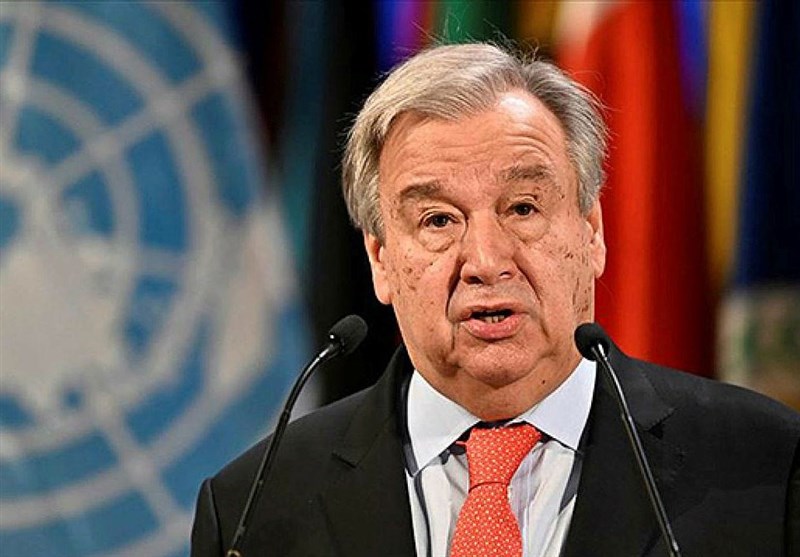
-
Published: 15 February 2023

The United Nations chief warned Tuesday that global sea levels have risen faster since 1900 and their relentless increase puts countries like Bangladesh, China, India, and the Netherlands at risk and acutely endangers nearly 900 million people living in low-lying coastal areas.
Edited by Christian Megan
NATURE SECTION- CJ JOURNALIST
WORLD - Feb. 15, 2023 - UNITED NATIONS
In a grim speech to the Security Council’s first-ever meeting on the threat to international peace and security from rising sea levels, Secretary-General Antonio Guterres declared that sea levels will rise significantly even if global warming is “miraculously” limited to 1.5 degrees Celsius (2.7 degrees Fahrenheit), the elusive international goal.
He warned the Earth is more likely on a path to warming that amounts to “a death sentence” for countries vulnerable to that rise, including many small island nations.
In addition to threatened countries, Guterres said, “mega-cities on every continent will face serious effects, including Cairo, Lagos, Maputo, Bangkok, Dhaka, Jakarta, Mumbai, Shanghai, Copenhagen, London, Los Angeles, New York, Buenos Aires, and Santiago.”
The U.N. chief stressed that every fraction of a degree in global warming counts since sea level rise could double if temperatures rise by 2 degrees Celsius (3.6 degrees Fahrenheit), and could increase exponentially with further temperature increases.
The World Meteorological Organization released data Tuesday spelling out the grave danger of rising seas, Guterres said.
“Global average sea levels have risen faster since 1900 than over any preceding century in the last 3,000 years,” he said. “The global ocean has warmed faster over the past century than at any time in the past 11,000 years.”
According to the data cited by Guterres, the global mean sea level will rise by about 2 to 3 meters (about 6.5 to 9.8 feet) over the next 2,000 years if warming is limited to 1.5 degrees Celsius. With a 2-degree Celsius increase, seas could rise up to 6 meters (19.7 feet), and with a 5-degree Celsius increase, seas could rise up to 22 meters (72 feet), according to the WMO.
“Our world is hurtling past the 1.5-degree warming limit that a livable future requires, and with present policies, is careening towards 2.8 degrees — a death sentence for vulnerable countries,” Guterres said.
The consequences are unthinkable, Guterres said. Low-lying communities and entire countries could disappear, the world would witness a mass exodus of entire populations on a biblical scale, and competition would become ever fiercer for fresh water, land and other resources.
Guterres has been trying to call the world’s attention to the dangers posed by climate change, to spur action.
In October, he warned that the world is in “a life-or-death struggle” for survival as “climate chaos gallops ahead” and accused the world’s 20 wealthiest countries of failing to do enough to stop the planet from overheating. In November, he said the planet is heading toward irreversible “climate chaos” and urged global leaders to put the world back on track to cut emissions, keep promises on climate financing and help developing countries speed their transition to renewable energy.
The landmark Paris agreement adopted in 2015 to address climate change called for global temperatures to rise a maximum of 2 degrees Celsius by the end of the century compared to pre-industrial times, and as close as possible to 1.5 degrees Celsius.
Guterres said the world must address the climate crisis as the root cause of rising seas, and the Security Council has a critical role to play in building the political will required.
The Security Council meeting, organized by Malta, which holds the council presidency this month, heard speakers from some 75 countries, large and small, endangered and landlocked, all voicing concern about the impact of the contining rising seas on the future of the world — and for some, the survival of their own countries.
“Climate induced sea-level rise is also provoking new legal questions that are at the very core of national and state identity. What happens to a nation’s sovereignty — including U.N. membership — if it sinks beneath the sea?”
“Science tells us that whether cities or countries disappear depends on whether we as humans counteract the threat,” Kőrösi said.
Source(AP)
